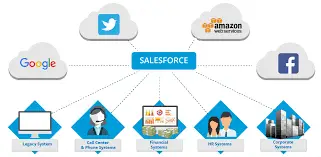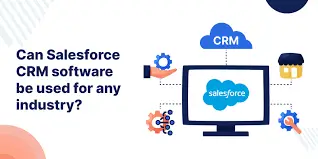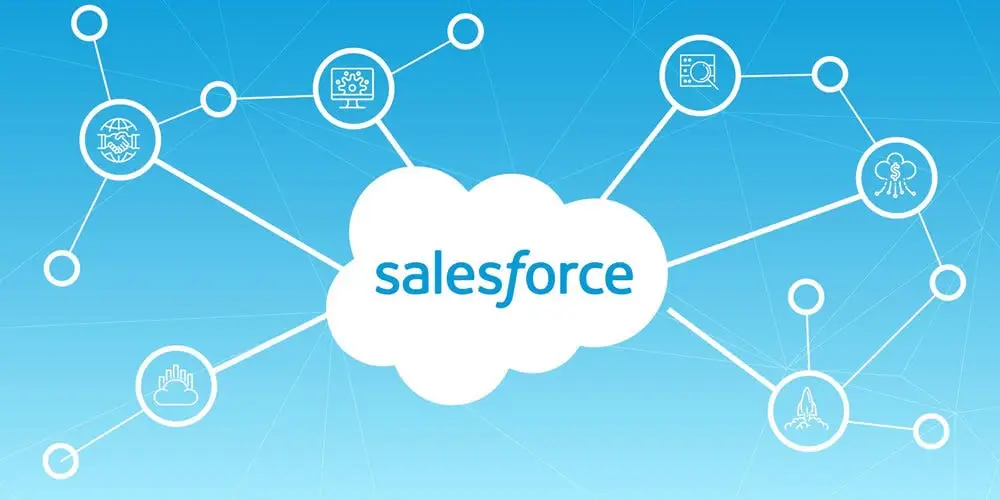Introduction
In today’s digital age, the intersection of technology and healthcare has led to the development of innovative platforms that enhance communication and collaboration among medical professionals. One such platform is Sermo, a popular social network for physicians that allows them to share insights, discuss cases, and connect with peers worldwide. As Sermo continues to grow and expand its services, questions arise about the tools and technologies it uses to manage its operations and relationships. One common inquiry is whether Sermo uses Salesforce, the leading Customer Relationship Management (CRM) platform. In this article, we’ll explore Sermo’s operations, the role of Salesforce in the healthcare industry, and whether Sermo integrates Salesforce into its platform.
Understanding Sermo: A Social Network for Physicians
1. What is Sermo?
Sermo is a global social network designed exclusively for physicians. Launched in 2005, the platform enables doctors to collaborate on complex cases, share clinical experiences, and provide peer-to-peer consultations. With a community of over 800,000 verified physicians across 150 countries, Sermo has become a trusted space for medical professionals to exchange knowledge and stay informed about the latest developments in healthcare.
2. How Sermo Operates
Sermo operates as a secure, members-only platform where physicians can engage in discussions, participate in polls, and access a wealth of medical resources. The platform offers several key features, including:
- Crowdsourcing Clinical Opinions: Physicians can post anonymized patient cases and receive feedback from their peers, helping them make more informed decisions.
- Real-Time Discussions: Sermo provides a forum for real-time discussions on medical topics, allowing doctors to stay updated on the latest research and trends.
- Surveys and Polls: The platform conducts regular surveys and polls to gather insights from its physician community, which are often used to inform research and policy decisions.
The Role of Salesforce in Healthcare

1. What is Salesforce?
Salesforce is a leading cloud-based CRM platform that helps businesses manage their customer relationships, streamline operations, and improve customer engagement. With its comprehensive suite of tools, Salesforce enables organizations to track interactions, manage sales pipelines, and automate marketing efforts.
2. Salesforce in the Healthcare Industry
Salesforce has made significant inroads into the healthcare industry with its specialized solutions like Salesforce Health Cloud. Health Cloud is designed to meet the unique needs of healthcare providers by offering tools for patient management, care coordination, and data integration. The platform allows healthcare organizations to deliver personalized care, improve patient outcomes, and enhance operational efficiency.
Does Sermo Use Salesforce?
1. The Need for CRM in Sermo’s Operations

Given Sermo’s large user base and the complexity of managing interactions among thousands of physicians, it’s natural to wonder whether the platform utilizes a CRM system like Salesforce. CRM tools are invaluable for organizations that need to manage large amounts of data, track user engagement, and personalize communications.
2. Evidence of Salesforce Integration
While Sermo’s specific technology stack is not publicly disclosed in detail, there is speculation that Salesforce could be a part of its backend operations. Several factors support this possibility:
- User Management: Sermo’s need to manage a vast number of physician profiles and ensure secure access aligns with the capabilities offered by Salesforce.
- Engagement Tracking: Salesforce’s robust analytics and reporting tools could help Sermo track user engagement, participation in polls, and other key metrics.
- Communication: The ability to send targeted communications and updates to specific segments of the physician community is another area where Salesforce could be useful.
However, without official confirmation from Sermo, it’s impossible to definitively state whether Salesforce is part of their technology stack.
Benefits of Using Salesforce for Sermo

1. Enhanced User Experience
If Sermo does use Salesforce, one of the primary benefits would be the ability to deliver a more personalized and seamless user experience. Salesforce’s CRM tools could help Sermo tailor content and notifications to individual physicians based on their interests and engagement history.
2. Improved Data Management
Salesforce’s data management capabilities would enable Sermo to efficiently organize and analyze vast amounts of information, such as user interactions, survey responses, and clinical case discussions. This could lead to more insightful analytics and better decision-making.
3. Streamlined Operations
Integrating Salesforce could also streamline Sermo’s internal operations, from user onboarding to customer support. Automated workflows and task management features would allow the platform to operate more efficiently, freeing up resources to focus on enhancing the user experience.
Challenges and Considerations
1. Data Privacy and Security
One of the primary concerns when integrating a CRM system like Salesforce into a healthcare platform is data privacy and security. Given the sensitive nature of the information shared on Sermo, it’s crucial that any CRM integration complies with healthcare regulations such as HIPAA (Health Insurance Portability and Accountability Act) in the United States.
2. Integration Complexity
Integrating a comprehensive CRM system like Salesforce with an existing platform can be complex and requires careful planning and execution. Sermo would need to ensure that the integration is seamless and does not disrupt the user experience.
3. Cost Implications
While Salesforce offers powerful tools, it also comes with a cost. Sermo would need to consider the financial implications of implementing Salesforce, including subscription fees, customization costs, and ongoing maintenance.
Conclusion
While there is no definitive public information confirming that Sermo uses Salesforce, the potential benefits of integrating a CRM system like Salesforce into Sermo’s operations are clear. From enhanced user experience and improved data management to streamlined operations, Salesforce could provide valuable tools to help Sermo manage its growing physician community. However, the challenges of data privacy, integration complexity, and cost must be carefully considered.
As the healthcare and technology landscapes continue to evolve, it will be interesting to see how platforms like Sermo leverage CRM tools to enhance their services and better serve their users.
FAQ
1. What is Sermo?
Sermo is a global social network for physicians that allows them to share insights, discuss cases, and collaborate with peers. It’s a secure platform where medical professionals can exchange knowledge and stay updated on the latest healthcare developments.
2. What is Salesforce?
Salesforce is a cloud-based Customer Relationship Management (CRM) platform that helps businesses manage their customer relationships, streamline operations, and improve customer engagement. It’s widely used across various industries, including healthcare.
3. Does Sermo use Salesforce?
There is no official public information confirming whether Sermo uses Salesforce. However, it’s possible that Sermo could benefit from integrating Salesforce’s CRM tools to manage its large user base and enhance its operations.
4. How would Salesforce benefit Sermo?
If Sermo uses Salesforce, the platform could benefit from enhanced user experience, improved data management, and streamlined operations. Salesforce’s tools could help Sermo deliver personalized content, deficiently manage user data, and automate internal processes.
5. What are the challenges of integrating Salesforce with Sermo?
Challenges include ensuring data privacy and security, managing the complexity of integration, and addressing the cost implications of implementing Salesforce. Any CRM integration would need to comply with healthcare regulations and be carefully planned to avoid disrupting the user experience.
